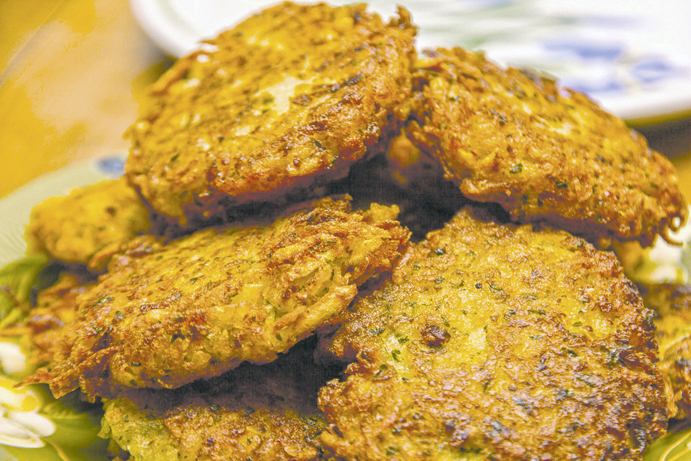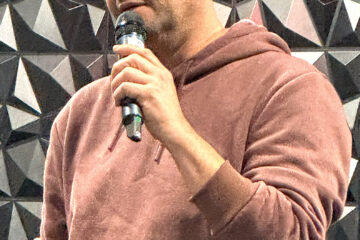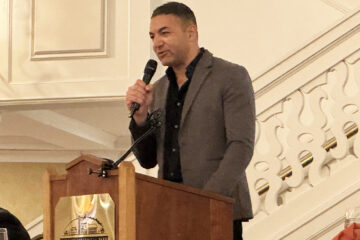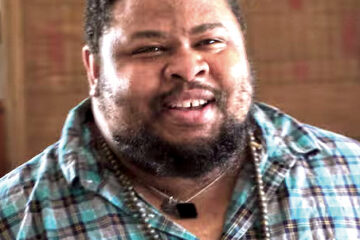Why we eat potato pancakes at Chanukah

By Rabbi Joshua Ginsberg, Beth Abraham Synagogue
If latkes could talk, what would they tell us? The Latke Song, a fun tune by the late Debbie Friedman, channels everyone’s favorite Chanukah food, and answers this very question. You can hear many covers of this popular song on YouTube.
Latkes, Yiddish for potato pancakes, are one of the quintessential Chanukah delicacies for Ashkenazic Jews.
They are fried in oil to commemorate the central miracle of the Chanukah story — a one-day supply of olive oil (for the Temple Menorah) that lasted eight days during the Maccabees’ heroic victory over the Syrian-Greek Seleucid Empire led by Antiochus IV.
But why potato pancakes?
In truth, latkes didn’t emerge as a Chanukah treat until the 16th century, when this New World product was introduced to Europe.
Before potatoes arrived on the continent, latkes were often made with buckwheat.

And as it turns out, potatoes weren’t an overnight success. According to the food historian Ken Albala, whose Sephardic grandparents emigrated from Turkey and Greece a century ago, “Potatoes did not fit into a culinary niche that Europeans knew about.”
Only when famine threatened in the late 18th century were farmers in northern and central Europe motivated to overcome their fears and plant potatoes.
And it wasn’t until back-to-back crop failures in 1839 and 1840 made starvation a distinct possibility that farmers in Eastern Europe followed suit.
This was a good thing, because for the Jews of the shtetl villages in Eastern European countries such as Russia and Poland, pickings were slim in winter, and potatoes were cheap and available from the root cellar.
Millions of Jewish mothers provided sustenance to their hungry children with just a few potatoes and very little fuel.
Few latkes, however, were actually fried in vegetable oil, let alone olive oil. In Eastern Europe, vegetable oils were often hard to find. So they fried them with schmaltz, fat rendered from chicken, duck or goose.
This was an unfortunate turn of events (at least for this vegetarian) because latkes were originally made with cheese.
The latke, potato or not, descends from Italian pancakes that were made with ricotta cheese.
The first connection between Chanukah and pancakes was made by the famous 13th-century Italian rabbi, Kalonymus ben Kalonymus.
In a poem, the rabbi included cheese pancakes in a list of dishes to serve at an idealized Chanukah (and Purim) feast. This perfectly tied into an earlier tradition.
In the early Middle Ages, dairy foods were connected with the Festival of Lights.
This was due to the Book of Judith, which is not part of the official Chanukah story (the story is connected with the first Temple, but nevertheless came to be associated with Chanukah).
According to this book, the beautiful Judith entertained an Assyrian general with salty cheese and with wine. When he passed out, she decapitated him with his own sword.
This allowed the Jews to mount a successful surprise attack. In one version of this story that circulated, the salty cheese was cooked into a latke, a pancake.
In Rome, Jews still make pancakes with ricotta for Chanukah. Perhaps, serving potato latkes with sour cream is a continuation of the tradition, since thankfully most of us no longer fry our latkes in schmaltz, but in oil, ideally olive.
Interestingly, Tel Aviv-based food writer Phyllis Glazer notes the word latke may derive from the Old Russian oladka, and is a diminutive of olad’ya, from Greek eladia, the plural of eladion, which means “a little oily thing.”
This comes from elaia, which means olive.
This reminds us that it is not the potato per se that should take center stage on Chanukah, but the miracle of the oil.
This is a good thing, since the Maccabees never saw a potato, much less a potato pancake; although, they did witness the liberating power of God.
We know this not only from the Chanukah story, but also from the term Maccabees, which is derived from an acrostic of the Hebrew, Mi Kamocha Ba’Eilim Adoshem, Who among the mighty is like you, God?
In our house, we often mix things up by making our latkes out of zucchini, carrots or sweet potatoes. Perhaps this year we’ll add a fried cheese latke to our repertoire.
Just as we can’t forget Judah Maccabee, we won’t forget our traditional friend, the potato. We’ll keep the oil burning this Chanukah season for the tried and true potato latke.
As the Chanukah light sheds its sweet light, may the aroma of oily treats also remind us of days long ago.
Chanukah Sameach, Happy Chanukah.
To read the complete December 2017 Dayton Jewish Observer, click here.





